
Pump Up Songs for Swimmers: How Tunes Can Help You Swim Faster
Here is the science behind how pump songs can help swimmers perform faster in the water.
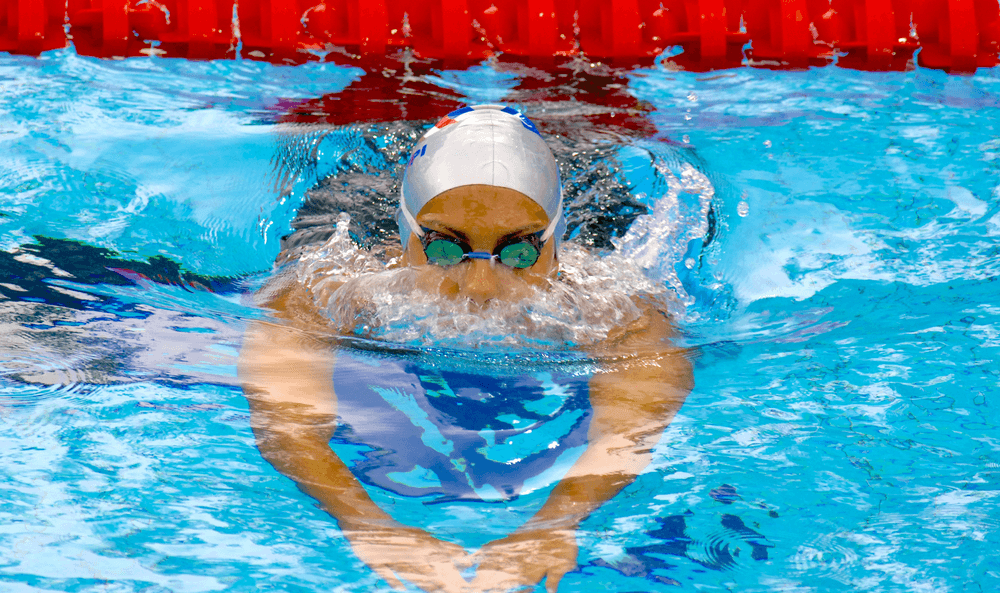
Michael Phelps was legendary for his steely-eyed focus behind the blocks. Looking down the pool with that focused, angry, thousand yard stare you could see that nothing would shake him from his mental state. He simply exuded mental fortitude to the point that it seemed like he’d been born with it.
Here’s the super-dee-duper news: mental toughness is earned. Not something you are gifted via genetics, or given as a kid. It’s accrued through experience, which means that anyone – if they so choose – can develop it.
The upsides of mental toughness are endless.
Better workouts from enhanced focus, increased commitment to their path to individual excellence, and a better looking smile. (One of those may or may not be true.) Mentally tough swimmers are also able to unrelentingly focus. Things are simply more basic for the mentally fortified athlete; there is no internal debate when offered the opportunity to skip a tough set, or indulge in that second bag of greased-down movie popcorn. In sum, they get work done.
If you’re wondering if you could use some work in becoming a more mentally tough athlete in the pool, here are 6 questions that you should start asking yourself:
1. Am I allowing outside influences, events or circumstances to affect my training?
Life has this funny knack for upsetting our best laid plans. No matter how together we think we have our lives in order, invariably something we didn’t plan on occurs. Whether this “something” was preventable or not at this point doesn’t matter, what does matter is how you are going to deal with the consequences. Will you allow yourself to be distracted by the outside noise? Or will you zero in on hammering out a solid effort?
2. Am I making a consistent effort to limit negative self-talk?
Negative thinking is a performance killer. Once you think you cannot do something the fight is over. Squash those negative thoughts when they show their nasty little faces. This doesn’t mean that you need to be overly peppy and faux cheerful all the time, rather, it means that you should be constantly vigilant for those nasty little thoughts. You’ll recognize some of their biggest hits:
3. Am I making an effort to be mentally tough day in, and day out?
It’s unfair to expect yourself to show up on race day and suddenly be a swimmer of iron nerves. Mental toughness is built piece by piece, workout by workout, in the trenches of tough workouts and smart life decisions. Are you skulking out of doing the tough sets? Breathing into the walls when coach isn’t looking? Taking 13.4 pulls into the wall when doing kick? It’s moments like that where you have the opportunity to be mentally gangster, so embrace them.
4. Am I willing to accept criticism?
I am talking about constructive criticism here, not the “you stink” type of criticism. Often times swimmers believe that they can get by on their talent and physical prowess alone, and forgo the nitty gritty of honing technique, and of developing a murderous work ethic. Keeping an open mind allows you to reap the benefit of the expertise of those around you. (Obviously, be wary of whose criticism you accept by weighing their knowledge against their experience. Listening to a coach? Yes. Your friend who has never swam in his life? Probably not.)
5. Am I willing to brush off setbacks, learn from them, and bounce back hard?
This is where those expanded mental toughness skills will really benefit you.
We both know that there will be times where we screw the proverbial pooch. Perhaps you over-estimated your training, or underestimated your conditioning, there are moments in our swimming careers where our performance falls short of our expectations. Instead of sagging your shoulders and moping, ruthlessly look at your performance (your coach can give tremendous assistance in this instance as well) and dissect what you did wrong, and more importantly, what you are going to do to make sure that it never, ever happens again.
6. Am I taking full responsibility for my swimming?
Your swimming, your stroke, and the results you earn are yours, so take ownership of it. Don’t look at the person in the next lane when things don’t go your way. The easy thing to do in a situation where you aren’t successful is to look outside your own preparation, your own work ethic, and instead find blame with the lane lines, the competition, the pool temperature, and so on. No one else is going to put the meters in for you, ultimately you are going to be the one that dictates your performance, so take complete ownership of the process, and thereby the results as well.
Subscribe to the YourSwimLog.com newsletter and get tips and advice on how to swim faster every weekday morning, straight to your inbox.
Join 33,000+ swimmers, coaches, and swim parents learning what it takes to swim like a boss.
Unsubscribe anytime. Email will never be shared or sold.

Olivier Poirier-Leroy Olivier Poirier-Leroy is the founder of YourSwimLog.com. He is an author, former national level swimmer, two-time Olympic Trials qualifier, and swim coach.

Here is the science behind how pump songs can help swimmers perform faster in the water.
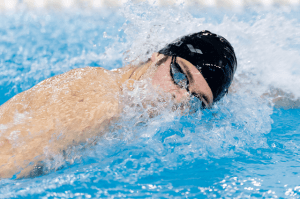
Often times we can be our own worst enemies in the pool. From paralyzing thoughts of failure, to getting too worked up before a race, our brains get in the way of our bodies from performing the way it has been conditioned to. Here are 6 ways to get out

You have trained your butt off all year, killed it over the holidays, and declined your friends invitations to go out on the weekend so that you could hibernate and recover. Now comes the fun part – unleashing all of that hard work at your year-end meet. This experience, the
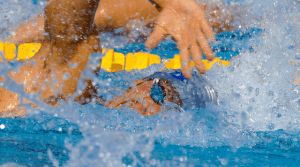
Struggling to get where you want to go with your swimming? Here are 6 common reasons you aren’t seeing the results you want in the pool.
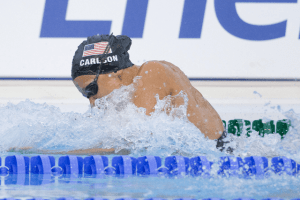
With every major success story, whether it is swimming, other sports, business or even the arts, a common thread between high performers in each field is that they have a legendary work ethic. It’s one of the prerequisites of success that we like to think we are exempt from, or
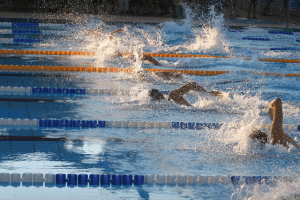
Setting goals for your swimming seems exceptionally simple, doesn’t it? After all, you dream on what you want, maybe even write it out, and bingo! Goal achieved, right? If setting and achieving goals were that simple, that straightforward, that easy, then goals would be getting toppled left, right and center.

LANE 6 PUBLISHING © 2012-2024 · PRIVACY POLICY · RETURN POLICY · TERMS OF SERVICE · AFFILIATE DISCLOSURE